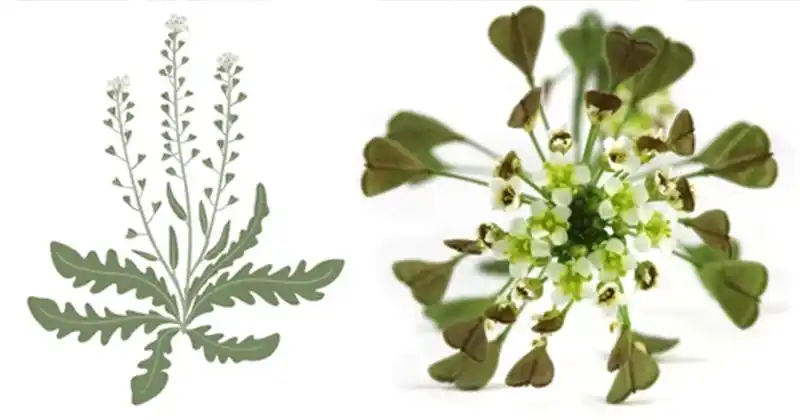Shepherd’s Purse (Capsella bursa-pastoris): A Medicinal Herb with Powerful Benefits

Shepherd’s Purse, scientifically known as Capsella bursa-pastoris, is a small, inconspicuous plant that has gained significant recognition for its medicinal properties throughout history. Named for the shape of its seed pods resembling a shepherd’s pouch, this herb has been used in traditional medicine for centuries. Despite its modest appearance, Shepherd’s Purse boasts an impressive range of benefits, making it a valuable natural remedy for various ailments. Whether you’re interested in herbal medicine or simply curious about natural health alternatives, this plant offers a myriad of uses that may surprise you.
10 Health Benefits of Shepherd’s Purse
- Promotes Wound Healing
Shepherd’s Purse has been used for centuries to speed up wound healing. It contains tannins and flavonoids, which are known to reduce inflammation and promote tissue repair. Applying Shepherd’s Purse extracts to cuts and abrasions may help stop bleeding and accelerate recovery. - Supports Menstrual Health
One of the most notable uses of Shepherd’s Purse is in regulating menstrual flow. Its astringent properties help to reduce heavy menstrual bleeding, making it a common remedy for women with irregular or excessive periods. It can be consumed as a tea or tincture for this purpose. - Improves Circulatory Health
Shepherd’s Purse helps regulate blood flow and has been traditionally used to manage conditions related to blood circulation. Its ability to constrict blood vessels makes it a valuable herb for treating varicose veins and controlling minor hemorrhages. - Manages Nosebleeds
Due to its astringent and blood-constricting properties, Shepherd’s Purse is often used to stop nosebleeds. A simple application of a compress soaked in Shepherd’s Purse tea can help reduce bleeding in a short amount of time. - Helps with Gastrointestinal Disorders
Shepherd’s Purse has mild diuretic properties, helping to flush excess water and toxins from the body. Its anti-inflammatory effects also soothe the digestive system, alleviating discomfort from issues like diarrhea and stomach cramps. - Supports Kidney and Bladder Health
As a mild diuretic, Shepherd’s Purse assists in the elimination of toxins and waste through increased urine output. It is believed to aid in reducing symptoms related to urinary tract infections and helps maintain kidney health. - Reduces Inflammation
The anti-inflammatory compounds in Shepherd’s Purse make it useful for treating a wide range of conditions. Whether applied topically or taken internally, the plant can help reduce swelling and irritation, making it a potential treatment for arthritis and muscle pain. - Balances Blood Pressure
Shepherd’s Purse is thought to help regulate blood pressure levels, particularly in cases of hypertension. Its vasoconstrictive abilities help tighten blood vessels, which can lower high blood pressure and improve heart health. - Eases Postpartum Hemorrhaging
Historically, Shepherd’s Purse has been used to manage postpartum bleeding. Its strong astringent effects assist in contracting the uterus and reducing heavy bleeding after childbirth, offering support during the recovery period. - Assists in Treating Respiratory Conditions
Traditional uses of Shepherd’s Purse extend to respiratory health, where it is employed to relieve symptoms of colds, flu, and bronchitis. Its anti-inflammatory and expectorant properties can help loosen phlegm and ease coughing.

How to Use Shepherd’s Purse
Shepherd’s Purse can be used in various forms, depending on the ailment you’re looking to address. Here are a few common ways to incorporate it into your health routine:
- Tea: One of the easiest ways to consume Shepherd’s Purse is in tea form. Steep dried Shepherd’s Purse leaves in boiling water for 10-15 minutes. This can be consumed up to three times daily to help with internal bleeding, menstrual issues, and gastrointestinal discomfort.
- Tincture: A concentrated tincture of Shepherd’s Purse is a potent option, commonly used to address more severe issues like heavy menstrual bleeding or nosebleeds. Follow the dosage instructions provided by a healthcare professional.
- Topical Compress: For external wounds, soak a cloth in Shepherd’s Purse tea or tincture and apply it to the affected area. This can help stop bleeding and promote faster healing.
- Poultice: Fresh leaves of Shepherd’s Purse can be mashed into a paste and applied directly to bruises, inflamed areas, or skin irritations.
Disclaimer
While Shepherd’s Purse offers numerous health benefits, it is essential to consult a healthcare provider before using it as a treatment, especially for serious conditions like postpartum hemorrhaging or high blood pressure. Pregnant women should avoid Shepherd’s Purse due to its ability to stimulate uterine contractions, and it may interact with certain medications, particularly blood thinners. Misuse or overconsumption of the plant can lead to adverse side effects, such as dizziness or digestive upset, so it’s important to use it responsibly.
Conclusion
Shepherd’s Purse is a humble yet powerful plant with a broad range of medicinal applications. From promoting wound healing to balancing blood pressure and supporting menstrual health, this herb has earned its place in natural medicine. However, as with any herbal remedy, it is important to use it safely and under the guidance of a healthcare professional. Whether you’re seeking a natural solution for minor ailments or looking to add it to your herbal collection, Shepherd’s Purse is a valuable addition to any home remedy toolkit.



















